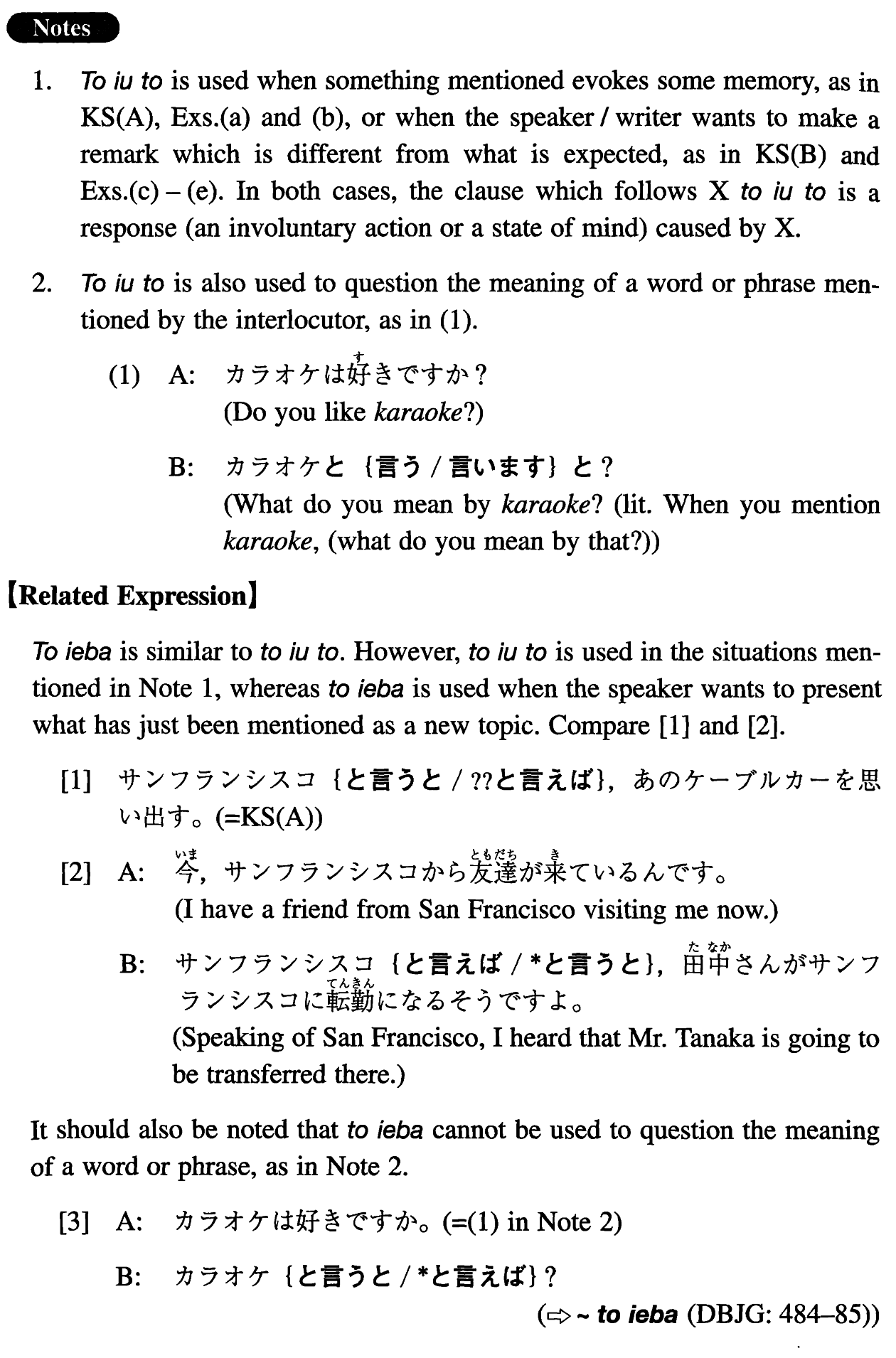
ホーム → 文法 → DoJG main menu → 中級編 → Intermediate Page 492
Phrase
| A phrase which is used when something which someone has mentioned causes an involuntary response. | When~ mention; if~ say that~; when~ say that~; when it comes to |
| 【Related Expression: と言えば】 | |
(ksa). サンフランシスコと言うと、あのケーブルカーを思い出す。
When you mention San Francisco, I remember those cable cars.
(ksb). 日本語を話すと言うと聞こえはいいんですが、実は簡単な挨拶が出来るだけなんです。
It sounds impressive when I say that I can speak Japanese, but the fact is that all I can do is exchange simple greetings.
| (i)Noun | と言うと |
| 長崎と言うと | When it comes to Nagasaki |
| (ii)Sinformal | と言うと |
| 家を買ったと言うと | If I say that I’ve bought a house |
(a). パリと言うと、誰でも真っ先にあのエッフェル塔を思い浮かべるだろう。
When someone mentions Paris, the (literally: that) Eiffel Tower is the first thing likely to come to everyone's mind.
(b). 柔道と言うと、毎日練習した学生時代を思い出す。
When it comes to judo, I remember my school days when I used to practice it every day.
(c). 漫画と言うと馬鹿にする人もあるが、あれはあれで面白いのだ。
Some people ridicule comics (literally: Some people despise you when you mention comics), but comics are interesting in their own way.
(d). 東大卒と言うと偉そうに聞こえるが、私は勉強なんか全然しない劣等生だったんです。
It sounds great when I say that I am a graduate of the University of Tokyo, but I was (in fact) a poor student who didn't study at all.
(e). 会社を辞めたと言うと体裁がいいんですが、彼は本当は辞めさせられたんですよ。
It sounds good when he says that he quit his company, but the truth of the matter is that he was fired (literally: was made to quit).
